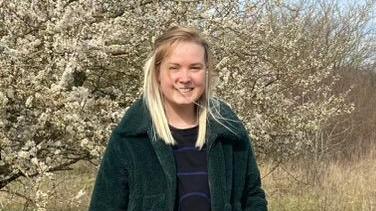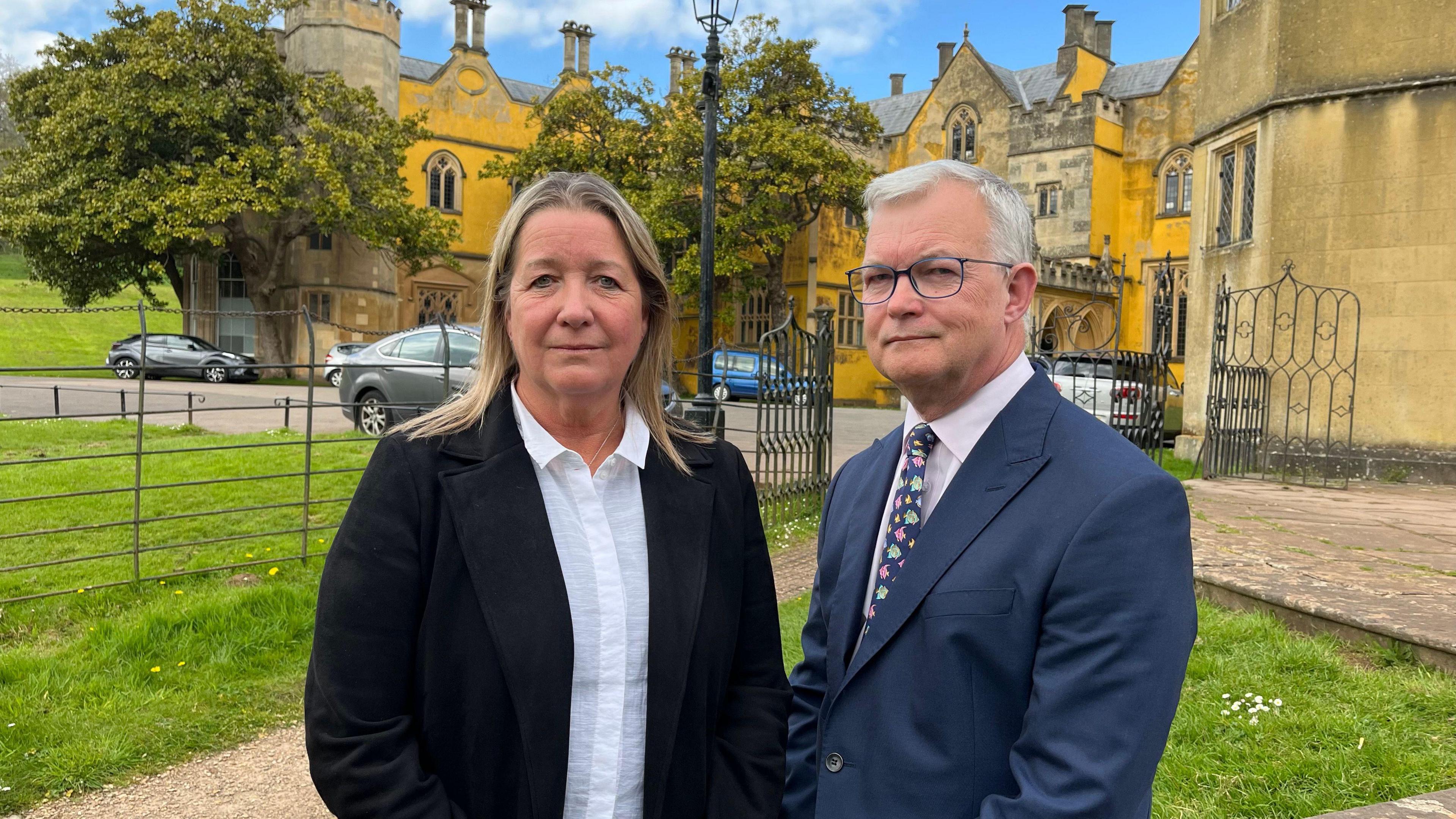Gross failures in nurse's care before death - inquest

Lily Lucas was a mental health nurse before she died
- Published
A mental health nurse who died after being found unresponsive in a hospital had received "gross failures" in her care, an inquest jury has ruled.
Lily Lucas, 28, was found unconscious at the Cygnet Hospital near Weston-super-Mare in September 2022, where she had been admitted as an NHS patient. She died in hospital in Bristol the next day.
Ms Lucas, from Malmesbury, Wiltshire, had been diagnosed with schizophrenia and possible post-traumatic stress disorder (PTSD).
At an inquest on Wednesday, the jury at Avon Coroner's Court in Bristol concluded that "gross failures" amounted to her neglect and there were "missed opportunities" to prevent her death.

The parents of Lily Lucas attended the inquest at Ashton Court
The inquest, opened by coroner Dr Peter Harrowing, has been examining the circumstances of Ms Lucas's death.
The coroner's court heard she was a “beautiful and loving person”.
The jury was told on Tuesday Ms Lucas died from cardiac arrest. She had drunk excessive amounts of water "consequent on psychogenic polydipsia (PP) and schizophrenia".
Returning its verdict, the jury listed multiple failures by Cygnet in relation to her death and the care she received, including:
Failure to recognise a deterioration in Ms Lucas's mental health from 7 September
Failure to recognise Ms Lucas was suffering from PP
Failure to provide adequate urgent medical attention
On 16 April, the jury heard the ward Ms Lucas was placed in was "understaffed" at the time of her collapse.
'Improvements since death'
Ms Lucas was admitted to the Cygnet Hospital under the Mental Health Act on 15 June 2022 after her mental health began to deteriorate. She was diagnosed with schizophrenia and possible PTSD.
On 5 September, she was prescribed the antipsychotic drug Clozapine to help manage her symptoms after they worsened.
The jury had heard Ms Lucas and her family were concerned about the prescription.
In the hours leading up to her collapse, the jury heard, Ms Lucas was seen drinking excessive volumes of water and eating excessively large quantities of food which was "uncharacteristic".
Dr Harrowing told the inquest he would not use his powers to propose a report to prevent future deaths as he was "reassured" by Cygnet that issues had been addressed and "more work is ongoing".
In a statement released after the inquest, Cygnet said improvements had been made since Ms Lucas's death.
A Cygnet spokesperson said the hospital saw a 60% reduction in staff turnover between 2023 and 2024, resulting in a significant reduction in agency usage.
They added all nurses had received training and a new role had been filled to help staff with physical health monitoring.
"Putting service users first is at the heart of what we do and their safety is our paramount concern," they said.
"We would again like to express our sincere sympathy and emphasise our commitment to ensuring care is of the highest quality and that improvements continue to be embedded."
'Death entirely avoidable'
In a statement, her family, said the conclusion had confirmed their "worst fears about the care that was provided to Lily" and it was "utterly heartbreaking to know that her death was entirely avoidable".
"In her moment of need, when she was at her most vulnerable and dependant, they significantly let her down," they said.
They added that hearing evidence of the "myriad failures explored" in the inquest had only compounded their "grief and despair".
"Our lives are shattered, and we are heartbroken that we are not able to see Lily fulfil her goals and dreams," they said.
"We miss her every day and always will."
See Also
Nurse seen drinking excessive water, inquest told
- Published15 April 2024
Ward 'was understaffed' when patient collapsed
- Published16 April 2024
Jury deliberates on death of mental health nurse
- Published23 April 2024
A mental health nurse who died after being found unresponsive in a hospital had received "gross failures" in her care, a jury has ruled.
Lily Lucas, 28, was found unconscious at the Cygnet Hospital near Weston-super-Mare in September 2022, where she had been admitted as an NHS patient. She died in hospital in Bristol the next day.
Ms Lucas, from Malmesbury, Wiltshire, had been diagnosed with schizophrenia and possible post-traumatic stress disorder (PTSD).
At an inquest on Wednesday, the jury at Avon Coroner's Court in Bristol concluded that "gross failures" amounted to her neglect and there were "missed opportunities" to prevent her death.